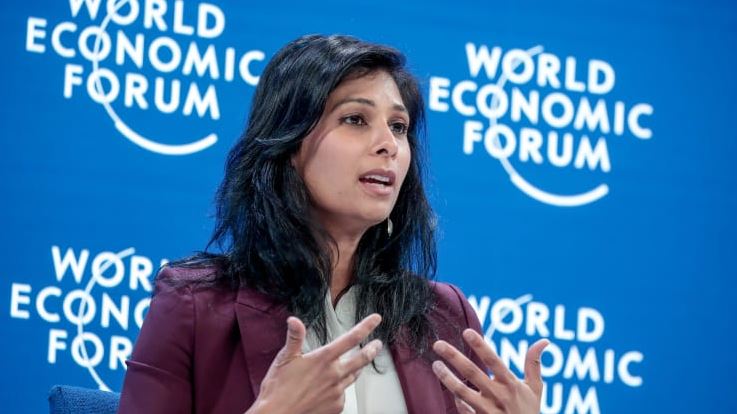 IMF chief economist Gita Gopinath. [Courtesy]
IMF chief economist Gita Gopinath. [Courtesy]
The International Monetary Fund foresees a steep fall in international growth this year as the global economy struggles to recover from the pandemic-induced recession, its worst collapse in nearly a century.
The IMF estimated on Tuesday that the global economy will shrink 4.4 per cent for 2020 in its update to the World Economic Outlook forecast. That would be the worst annual plunge since the Great Depression of the 1930s.
“We continue to project a deep recession in 2020 with global growth projected to be -4.4 per cent. This is a small upgrade relative to our June numbers. We expect growth to rebound partially in 2021, coming back to 5.2 percent. However, with the exception of China, all advanced economies and emerging and
developing economies, excluding China we are projecting output will remain below 2019 levels well into 2021. Therefore, we see that the recovery from this catastrophic collapse will likely be long and even highly uncertain,” said IMF chief economist Gita Gopinath.As the world tries to bounce back from the economic turmoil caused by the COVID-19 pandemic, Gopinath argues that there will be risks to the recovery, but also a chance that things can improve.
“There are broad risks to the upside and to the downside. On the upside, we could have positive development in terms of treatments and vaccines that could hasten the end of this health crisis. And we could also have more policy support that would help. But there are many downside risks. We could have worse news on the health front, and we could have greater financial turmoil at a time when debt is at the highest level in recorded history. And we have rising geopolitical tensions that could also derail the recovery,” said Gopinath.
She added that the road to recovery will be a difficult ascent and gave recommendations on how policies could be designed to put economies on a healthy growth path.
“First, it is essential that fiscal and monetary policy are not prematurely withdrawn as this crisis is far from over. Second, we need much greater international collaboration to end this health crisis by making sure that when once new treatments and vaccines are available, then it will be produced a sufficient scale to be available widely in all countries. And lastly, policies should be designed towards putting economies on a path towards more sustainable, inclusive and prosperous growth,” said Gopinath




No comments :
Post a Comment